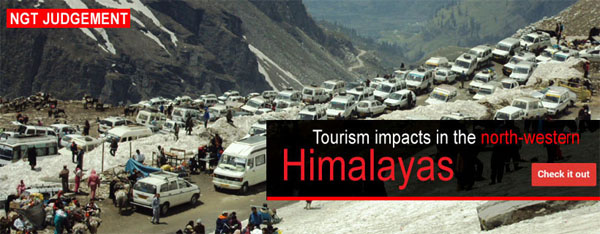State of the Climate in Asia 2024
<p>The World Meteorological Organization’s State of the Climate in Asia 2024 report warns that the region is warming nearly twice as fast as the global average, driving more extreme weather and posing
<p>The World Meteorological Organization’s State of the Climate in Asia 2024 report warns that the region is warming nearly twice as fast as the global average, driving more extreme weather and posing
The last edge of the Greenland ice sheet that had resisted global warming has now become unstable, adding billions of tonnes of meltwater to rising seas, scientists say. In a study published in the
Sea levels are set to rise perceptibly as the last remaining stable bit of the Greenland ice sheet has turned unstable, a new study has found. The findings of the study, which could lead to higher estimates of expected sea level rise in the future, appears in the latest edition of the journal ‘Nature Climate Change’
The southern hemisphere westerly winds have been strengthening and shifting poleward since the 1950s. This wind trend is projected to persist under continued anthropogenic forcing, but the impact of the
The world's first study of deep ocean trench has confirmed climate change — excessive warming of the ocean and melting of Arctic ice — has made marine life far sparser and less varied than expected in
Peru’s Quelccaya ice cap, the world’s largest tropical ice sheet, is shrinking because of rising temperatures, according to a study by Dartmouth College. Dartmouth’s research suggests “that these tropical
Earth’s ability to reflect sunlight is diminishing due to drastic melting of sea ice in Arctic Ocean, a new study says. The researchers from Scripps Institution of Oceanography, at the University of

<p>Judgement of the National Green Tribunal in the matter of Sher Singh Vs State of HP dated 06/02/2014 regarding tourism impacts on satellite spots of major tourist destination at Manali in the north-western
A number of floating ice shelves in Antarctica are at risk of disappearing entirely in the next 200 years, as global warming reduces their snow cover, a new study has warned. Their collapse would enhance the discharge of ice into the oceans and increase the rate at which sea-level rises, researchers said.
The average temperature of Earth maintained its warming trend in 2013, despite seasonal and regional variations that included a shrinking ice cap in the Arctic and a massively growing one in the southern
Amid controversy and debate over the precise impact of global warming on the Himalayas, glaciologists analysed a massive cache of data on the mountain range and have concluded that it lost 13 per cent